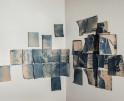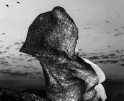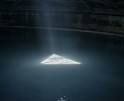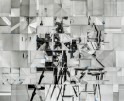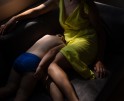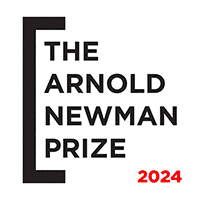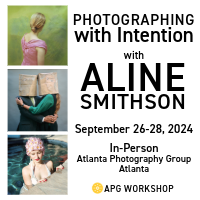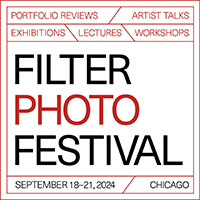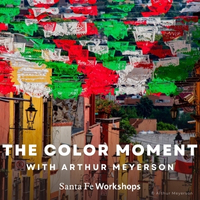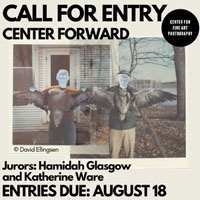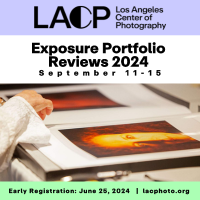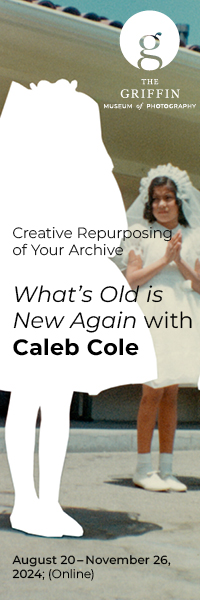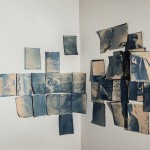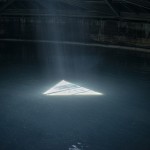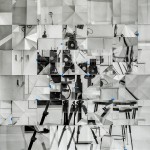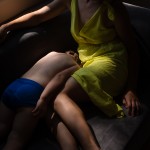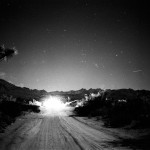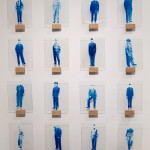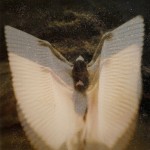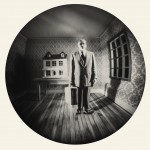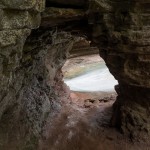Brazil Week: Alexandre Sequeira
This week we will turn our attention to Brazilian Photography. We’ll begin with the touching and necessary work of Claudia Andujar on the essence and transformation of the Yanomami indigenous people, we’ll delve into the rituals full of meanings of Rodrigo Braga, we’ll get to know the creative narratives of Lenora de Barros through the records of incredible video performances, we’ll be delighted with the sublime poetic fictions of Alexandre Sequeira and finally we will get to know the creative work of the acclaimed Rosangela Rennó, the photographer who does not photograph. – Ana Leal
Alexandre Romariz Sequeira, 1961. Belém-Pa.
Visual artist, Curator, with Master and Doctor degree in Art from UFMG and professor at the pos-graduation and graduate levels at the Institute of Art Sciences at UFPA.
Develops research in the field of Arts, with an emphasis on Photography and Contemporary Art, working mainly on the following topics: visual arts, arts, curatorship and visual arts exhibitions. Participates in Photography Meetings, Seminars and Exhibitions in Brazil and abroad, highlighting “Une certaine amazonie” in Paris/France; Liège/Belgium International Photography Biennial; X Biennial of Havana/Cuba; Pingyao/China International Photography Festival; exhibition “Giant by nature itself” in Valencia, Spain; “Contemporary Brazilian Printing” in New York/USA; PhotoGoa 2018/India; Taipei Photo 2018 and Latin American Photography/ Taiwan; Terra Brasilis: les photographes contemporains brésiliens/Fance;. There are works in the collection of the UFPa Museum, Casa das 11 Janelas Cultural Space; Pirelli Collection/MASP, Art Museum of Rio/MAR, Museum of Contemporary Art of Rio Grande do Sul, Museum of Photography/CE, Photography Collection of the Brazilian Association of Contemporary Art/ABAC and National Library of France/Bnf.
Throughout 2004 and 2005, I was welcomed by the families of Nazaré do Mocajuba, a small village in the Amazon region. Inside the houses, I identified objects such as curtains, tablecloths, hammocks, blankets, mosquito nets and sheets, which, in their colors and prints, they revealed particular traits of their owners. I proposed an exchange to my companions: for each of these old pieces, he would supply one with the same function, but new. It was on the surface of these time-worn pieces that I reproduced the image of its owner in full size. The result is 10 textiles/personal objects and photographs that present them in the village environment or in their homes of origin.
In “Meu Mundo Teu”, I promoted the meeting of two teenagers through letters and photographs in which both describe in detail their personal symbolic universes. I acted as a mediator who took each of the teenagers, and myself, to dive into a journey of self-knowledge through a game of contrasts between different cultures and realities. Through a handmade photographic process, the metaphor of the meeting of two beings, two worlds are materialized, enhancing the affection and richness that friendship provides. – Alexandre Romariz Sequeira
Ana Leal: What led you to work with photography ? And what keeps you connected to it?
Alexandre Romariz Sequeira: I usually say that I use photography to relate to the other. In general, I am perceived by the people with whom I establish contact, as the one who walks around with a camera slung over his shoulder, photographing things. In this sense, it is natural and understandable that, even without me programming, the first conversations arise from questions related to photography. From these encounters, some question may derive that interests me artistically, but they can also represent just a pleasant encounter and a new friendship. I see my work crossed by photographic issues, but the final results sometimes take on other forms, such as experience reports, for example. I often hear from people who come into contact with my work that a point that unites them is the network of affectionate relationships that are established. I agree that this might actually be a common point. As much as the inducing element of a given research is some question that comes from literature, philosophy, or even from an apparently banal event, it is resolved, above all, in caring for the other. In the fair adequacy between a caring approach and the due distance that respects the individuality of each one. Whatever the method, it must be converted into attitudes, gestures, words, silence, and the calmness of letting things happen in the time they have to happen.
As for the specific use of photography in my works, I start from the acknowledgment that we live today in a society dictated by images, whether they are fixed, moving, manipulated… There is an intense dialogue and crossing of issues that may even have their origin in a certain specific work, but which become irrelevant from the point of view of the analysis of the work itself. The reflections that feed contemporary artistic production, for the most part, are much more concerned with questions of a conceptual nature, than with questions of a technical nature. And so it is with photography, which – especially since the virtual revolution – has become a powerful vector that traverses and redefines many of our most fundamental values. Our understanding of truth, of fabrication, or our sense of what is real is being revised. As well as issues such as time, space, borders, identity relationships… It is a revolution that extends its field of influence far beyond photography, and makes me certain that, through it, I can deal with endless issues with the people I work with. live.
AL: What motivates you to start a new project?
AS: I never felt “from one place”. I love being provoked to get out of that lethargy that routine often imposes on us: getting to know other cultures, other people… But not everything in life is planned. The feeling is that events come ahead, at a speed that sometimes prevents us from, at the moment they happen, reflecting on their importance in the chain of professional interests that we seek for our true fulfillment. In this sense, I try, most of the time, to seek a focus, a direction that helps me weigh the importance of the things that happen around me, what affects me, what interests me to talk about. In any case, everything derives from encounters, from the exchange of information, from the broadening of the field of vision. At each meeting, I always come back full of new ideas. I feel that what I intend with my production in art or what motivates me to develop a new work is placed in a permanent state of ebullition, of transformation due to these contacts that I establish.
Almost always an artistic work does not indicate answers, but raises questions. Perhaps for this reason, I always conclude a work with many questions that always push me forward. Whenever I’m finishing a piece of work, I feel that my thoughts jump, in search of something that is already ahead, and ahead. And so life goes o
AL: And what comes next ?
AS: I am very affected by what I dealt with in my doctorate: poetic self-fiction, that is, our ability to interpret our lived experience, not always guided by a commitment to a faithful and accurate report, but as an interpretation that values the quality of the experience and, therefore, it is subject to twists and turns, appropriations. Something that concerns what we are based on a collage of countless references – not always about what we actually live, but also about what we witness, what we read, feel, hear, dream… And, of course, I think of the power of photography as the trigger of this type of process. Our life experience is crossed by a collective memory and we appropriate it as effectively ours.
And that’s how I think I get lost to find myself. Fiction is a way of getting closer to my problems. Memory is always an invention that tries to give a new meaning to the present time and impregnate the future with other possibilities. But this game ended up leading me down a path of no return. I invented it to survive and, to recognize the deviation, to recover my true identity would be to surrender myself to public condemnation.
So I keep mixing the things of life with the lives of others. I don’t even know if it was or if it wasn’t. But it is because there is no time to separate. I have an urgency to speak because speaking I believe I can change my life and, who knows, also someone else’s life. I forget to be able to come back as another, to make life an experience and pain a resistance.
Born in Northeastern Brazil and based in São Paulo, Ana Leal is an artist who works primarily in photography, considering it to be a tool for both depicting and escaping from reality.
Inspired by minimalist traditions and impressionist painters her images result simple and often abstract. She captures imagery she observes or stages shooting with 50mm lenses.
Leal is a Gold Award winner on the 2020 Tokyo International Foto Awards and the 15th Julia Margaret Cameron Award Winner both in the abstract category. She completed her Master of Fine Arts at Miami International University of Arts and Design (2018) and her work is part of the collection of the Florida Museum of Photographic Arts – FMoPA.
IG : @analealphoto
Posts on Lenscratch may not be reproduced without the permission of the Lenscratch staff and the photographer.
Recommended
-
The 2024 Lenscratch 3rd Place Student Prize Winner: Mehrdad MirzaieJuly 24th, 2024
-
One Year Later: Nykelle DeVivoJuly 19th, 2024
-
One Year Later: Anna RottyJuly 18th, 2024
-
The Paula Riff Award: Minwoo LeeJuly 17th, 2024
-
Anastasia Sierra and Carrie Usmar: Talking MotherhoodJuly 16th, 2024





















